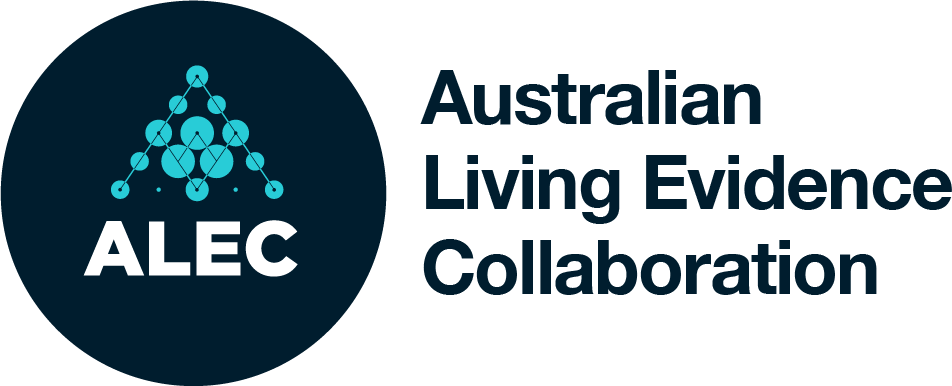What we do
We support evidence-based clinical decision-making in priority areas for Australian health care settings.
To do this we:
convene the sector (clinicians, consumers, policymakers, organisations, researchers) to promote and build multidisciplinary collaboration
provide living evidence syntheses
develop living guidelines
conduct research to improve our impact
Delivering Living Evidence
Building capacity for delivering living systematic reviews and evidence-based guideline recommendations that are reliable, accessible and continuously updated as new research becomes available.
We accelerate evidence
Accelerating the potential for new research to drive better health outcomes and better value healthcare in Australia.
We’re global leaders and partners
Maintaining Australia’s position at the forefront of global efforts to develop Living Evidence platforms, processes and partnerships.











































































